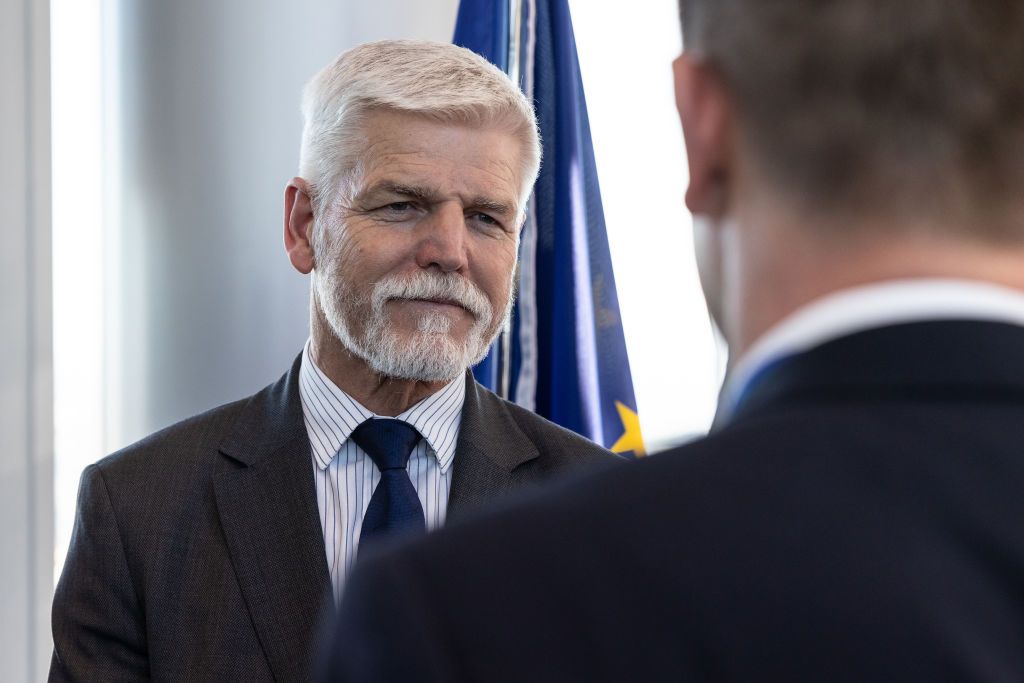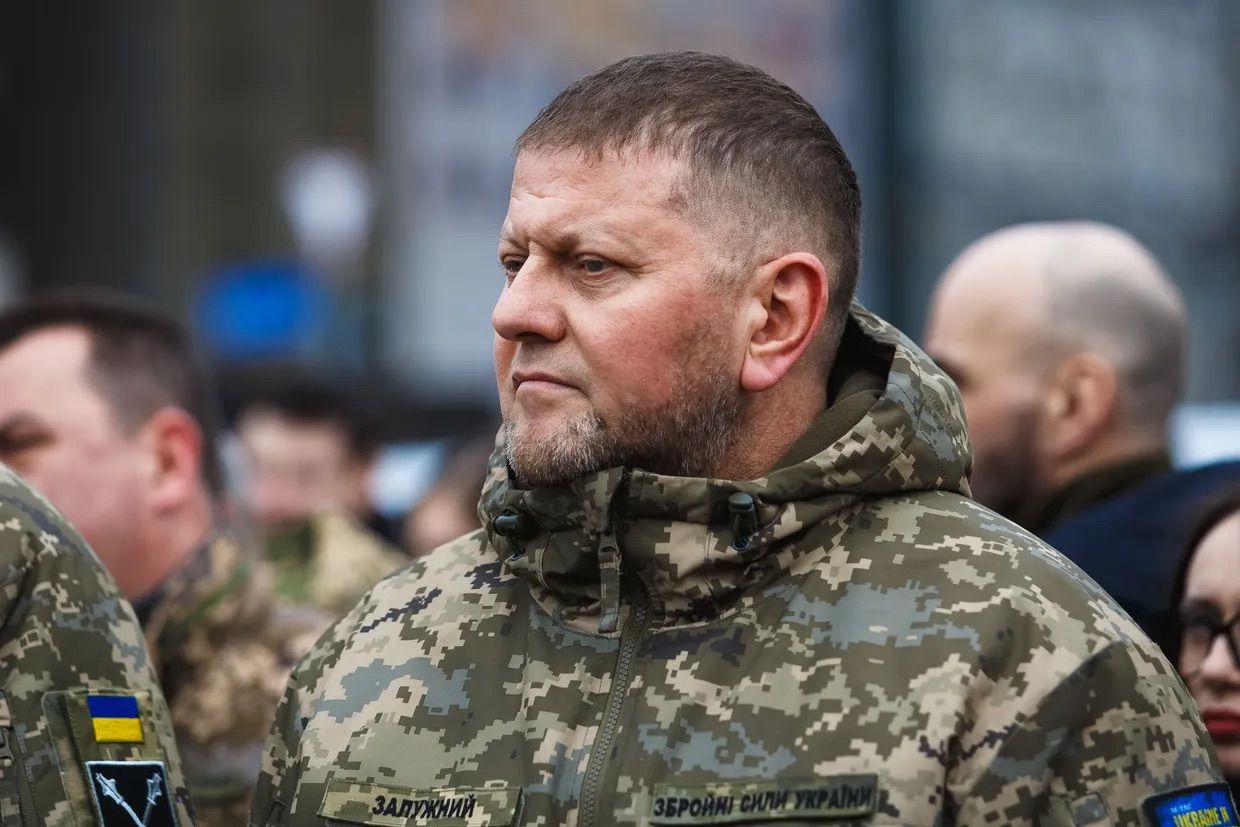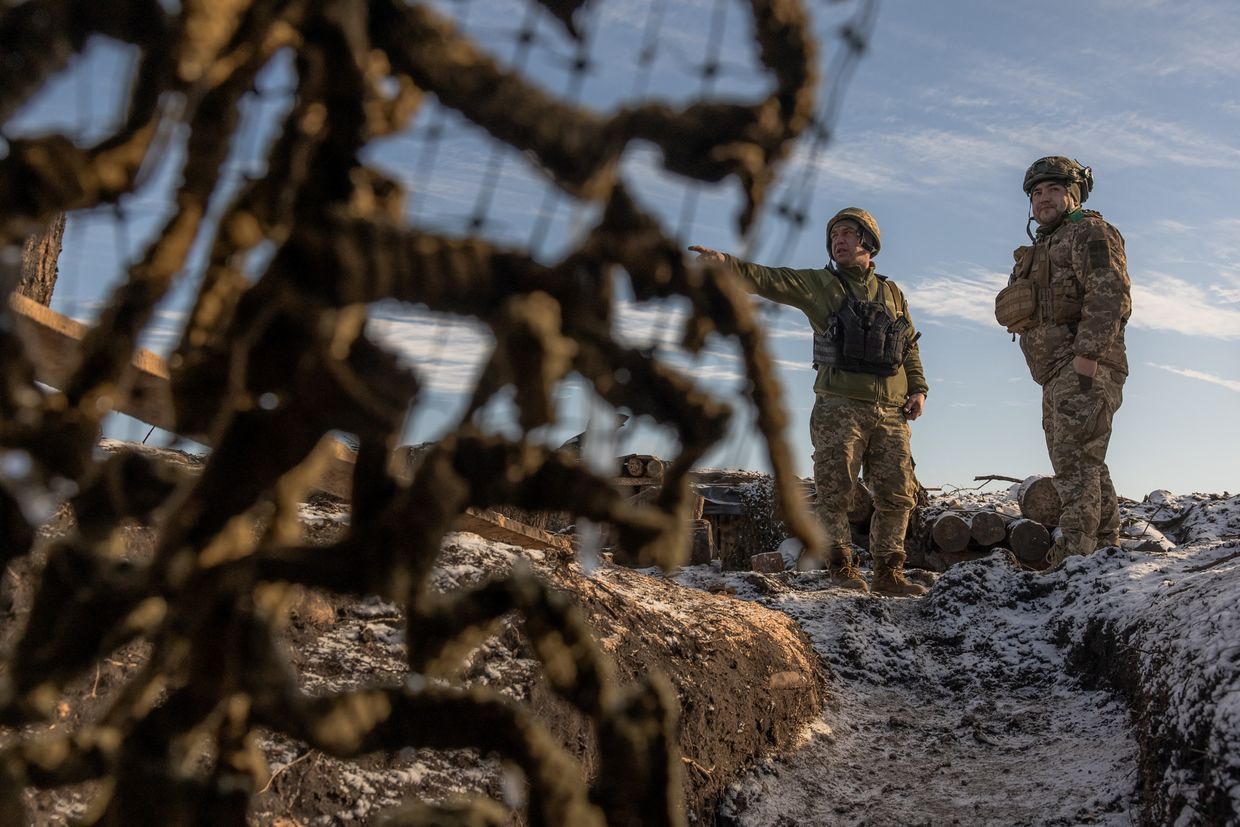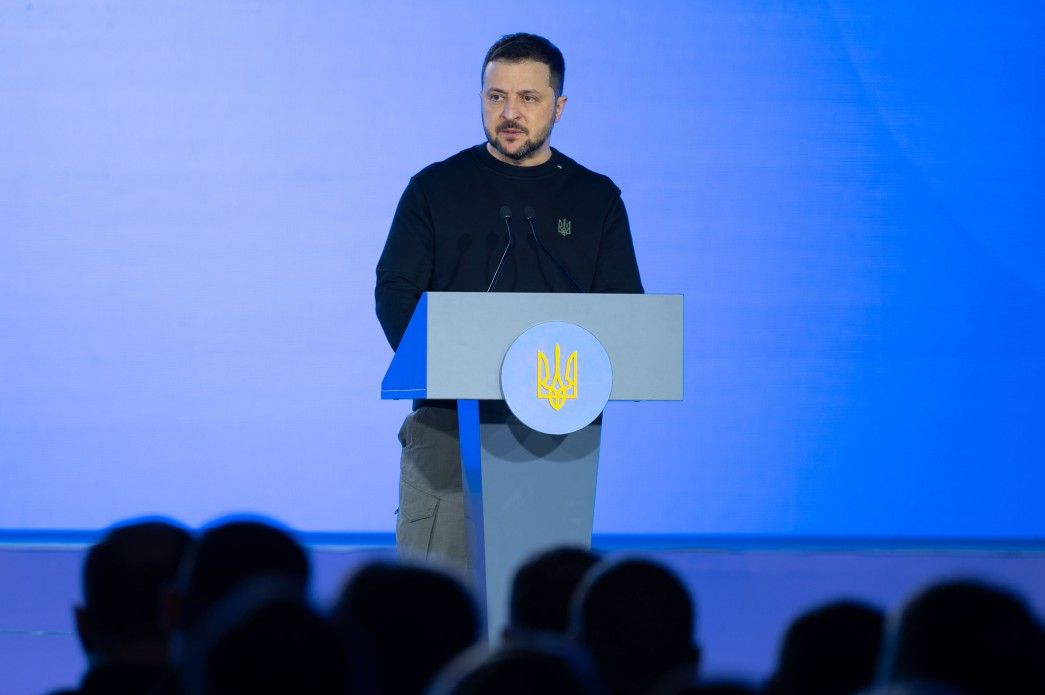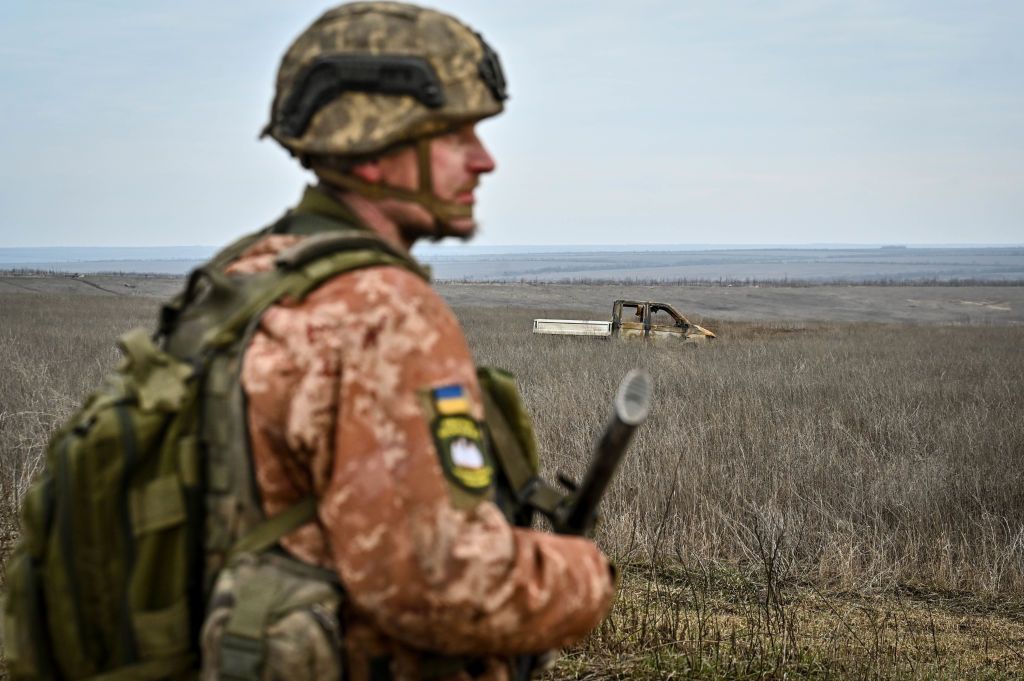Ukraine war latest: Allies collect funding to purchase 800,000 shells for Ukraine, Czech president says

Key developments on March 7:
- Pavel: Allies collect required funding to purchase 800,000 shells for Ukraine
- UK pledges $416 million to buy 10,000 drones for Ukraine
- Governor announces mandatory evacuation from Kupiansk area
- Media: Indian men coerced into fighting for Russia
- Lithuanian intelligence: Russia can fight Ukraine 'at a similar intensity' for at least 2 years
Czech President Petr Pavel said on March 7 that after Norway had joined the Czech-led initiative on purchasing 800,000 artillery shells for Ukraine, the required funds were collected, Czech outlet CT24 reported.
As $60 billion in aid for Ukraine from the U.S. remains stalled in Congress, the Ukrainian Armed Forces continue to face critical ammunition shortages.
Prague launched its military aid initiative in February, as it had found 500,000 155 mm shells and 300,000 122 mm shells outside Europe that could be sent to Ukraine after the necessary funds were allocated to the initiative.
Pavel said 18 countries participated in the Czech-led allied initiative, and "within weeks," Ukraine would get the ammunition.
Norway was the last contributor, allocating 1.6 billion Norwegian kroner ($153 million) to the initiative. Other contributors, including the Netherlands, Belgium, Germany, Latvia, and Canada, had publicly committed to the initiative earlier.
"Now everything will depend on our companies’ and the defense ministry's abilities to speed up the whole process (of delivering aid)," Pavel said.
Amid the ammunition shortage, Ukraine has already withdrawn from Avdiivka, a key front-line city in Donetsk Oblast, on Feb. 17 and from other nearby villages weeks later.
UK pledges $416 million to buy 10,000 drones for Ukraine
The U.K. will allocate 325 million pounds ($416 million) to purchase over 10,000 "cutting-edge" drones for Ukraine, Defense Secretary Grant Shapps announced on March 7.
The newly announced aid will further boost the 200-million-pound ($256 million) drone package unveiled in January during U.K. Prime Minister Rishi Sunak’s visit to Kyiv.
Shapps made the announcement after meeting President Volodymyr Zelensky and Defense Minister Rustem Umerov during a visit to Kyiv on March 7.
The majority of the drones will be highly effective first-person view (FPV) drones. The package will also include 1,000 one-way attack drones, researched and developed in the U.K., as well as surveillance and maritime drones.
Shapps said that more than 100 million pounds ($128 million) from this aid package will be spent on Ukraine’s maritime capabilities, allowing Kyiv to "continue to turn the tide in the Black Sea."
"I am ramping up our commitment to arm Ukraine with cutting-edge new drones coming directly from the UK’s world-leading defense industries – straight from the factory floor to the front line," Shapps said in the press release published by the U.K. Defense Ministry.
"I encourage international partners to join the UK in this effort."
The U.K., along with Latvia, co-leads a drone coalition that aims to bolster Ukraine's arsenal.
Drones have been a key tool in Ukraine's defense against Russia. Zelensky said that surpassing Russia in drone operations is one of the top priorities in 2024.
Zelensky also signed a decree on Feb. 6 creating a separate branch of Ukraine's Armed Forces dedicated to drones. It will reportedly focus on creating special drone-specific units, increasing production, ramping up training, and pushing innovations.
Governor announces mandatory evacuation from near Kupiansk
Kharkiv Oblast Governor Oleh Syniehubov announced on March 7 that local authorities would conduct mandatory evacuation of residents living in communities near Kupiansk.
Kupiansk is a crucial strategic city in Kharkiv Oblast that was temporarily occupied by Russian troops in 2022. Kupiansk has recently been under heavy attacks as Russia intensified assault attempts in the area.
All residents will be evacuated from 57 settlements, Syniehubov said.
Ukraine's Khortytsia Operational and Strategic Group reported on Feb. 26 that Russia continues to concentrate its forces near Kharkiv Oblast's Kupiansk.
The Institute for the Study of War (ISW) earlier warned that Russia could replicate its successful tactics in Avdiivka on a larger scale if the West continues to delay military assistance.
Media: Indian men tricked, coerced into fighting for Russia
Multiple cases of Indian men coming to Russia for work or tourism before being coerced to join the war against Ukraine and, in some cases, dying in battle have appeared in the media in the past few days.
Russia's war against Ukraine resulted in heavy casualties for the Russian military. Seeking to limit unpopular conscription among the domestic population, Moscow has been attracting foreign recruits from countries in Central or South Asia and elsewhere.
Seven young men from the Indian states of Punjab and Haryana appealed to Indian authorities for help earlier this week in a video shared on the social platform X.
The group of men, dressed in military-style attire, claimed they left for Russia on Dec. 27, 2023, for the New Year's celebrations. Their travel agent offered to take them to Belarus without visas, where he subsequently abandoned them, an Indian man talking in the video said, according to the NDTV news channel.
Local police allegedly handed them over to Russian authorities, who made them sign documents and join the military to fight in Ukraine, NDTV reported on March 6.
"They were forced to join the army there since the documents which they signed in Belarus were in the Russian language. It said they either accept imprisonment for 10 years or join the Russian army," a relative of one of the men in the video claimed.
According to NDTV, nearly two dozen Indians are reportedly stranded in Russia or on the front line in Ukraine, all saying they had been tricked into military service. Other estimates say that the real numbers go into the hundreds.
Some Indian citizens have even been reportedly killed in battle. Hemil Mangukiya, a 23-year-old from the Indian state of Gujarat, left for Russia to look for work last December, The Guardian reported on March 7.
The man's family said that early this year, they had received a call that Mangukiya was killed in a missile strike in Ukraine.
Another Indian, Mohammad Afsan, also reportedly died on the front line after traveling for a job in Moscow last November.
"He had no idea he was being sent to a war zone," said his brother Mohammad Imran, according to The Guardian.
Lithuanian intelligence: Russia can fight Ukraine 'at a similar intensity' for at least 2 years
High oil prices, military industry investments, and sanctions circumvention give Russia enough resources to continue the war against Ukraine at a similar intensity for at least two years, according to a Lithuanian intelligence report said published on March 7.
The Russian full-scale invasion, which recently entered its third year, shows no signs of relenting as Moscow's troops ramp up pressure along the front. Ukraine finds itself in an increasingly precarious position, namely due to delays in U.S. assistance.
"Russia has financial, human, material, and technical resources to continue the war at a similar intensity in at least the near term," the report drafted by the counter-intelligence State Security Department (VSD) and the military's Defense Intelligence and Security Service said, clarifying that the "near term" denotes six months to two years.
Aggression against Ukraine is now leading Russia's foreign policy as the Kremlin seeks to stop support for Kyiv with blackmail and threats, the brief read.
Moscow also continues expanding its network of companies to help the country avoid Western sanctions, looking for intermediaries to secure equipment needed for the war.
The West has been intensifying efforts to crack down on Russia's ability to dodge sanctions via third-party countries. Entities in Turkey, Kazakhstan, Kyrgyzstan, China, and other states continue to supply Moscow with computer parts, drones, and other materials that help the country fuel its defense industry.
The Lithuanian intelligence agencies warned that if the war against Ukraine freezes or stops for some reason, Moscow will focus on developing its military capabilities in the western direction.
Even as Russia keeps allocating huge resources to war against Ukraine, it also keeps preparing for a long-term confrontation with NATO, including in the Baltic Sea region, the report said.
Several NATO officials have recently warned that the alliance should prepare itself for the possibility of an open clash with Russia in the coming years.
"Russia... has embarked on a major reform of its Armed Forces," although its "full implementation will take from at least several years to a decade," according to the brief.


